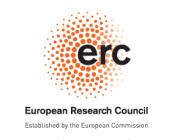"Historical Comprehension and Moral Judgement of World War II and the Holocaust: The View from North Africa."
Friday, 18 November 2016, MESA Conference, Boston, USA.
|
It is commonly assumed that the Second World War and the Holocaust marked the European collective memory as well as the continental history in different manners than it did outside of Europe, for instance in the Middle East, and in North Africa in particular. The proposed panel intends to review this assumption by asking: Can and should a perception of the ultimate catastrophe be truly global after all? In other words, can and should the "epistemological gap" between the North African's historicism of the local historical experiences related to colonialism, on the one hand, and the continental traditions of universalizing WWII and the Holocaust, on the other hand, be bridgedr The aim of the panel is to explore how continental events that have occurred during WWII, and in particular the genocide of the European Jews on the European soil, were historically comprehended and morally judged in local terms in Morocco, Algeria, Tunisia, and Libya before and after 1945.
|
MEMBERS:Susan Gilson Miller(University of California, Davis)Daniel J. Schroeter(University of Minnesota)Joshua Schreier(Vassar College)Abdelilah Bouasria(University of Montana)Samir Ben-Layashi(Hebrew University of Jerusalem)David Stenner(Christopher Newport University) |

